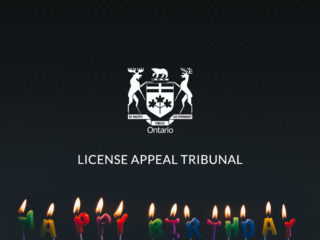The plaintiff brought a motion under rule 30.10 of the Rules of Civil Procedure seeking production of the complete and unredacted Crown Brief in an ongoing sexual assault prosecution. The motion was brought within a civil action alleging libel. The plaintiff claimed that the defendant defamed him on Twitter by accusing him of sexually assaulting her around 1998 when she was a child.
The plaintiff was charged with sexual assault on November 18, 2022. The criminal prosecution was ongoing and dates for a preliminary inquiry or trial were not yet set when the WAGG motion was heard. The plaintiff’s civil action was in its early stages as pleadings had not yet closed, no affidavits of documents were exchanged, and no examinations for discovery were conducted.
There were two issues before the motion judge: (1) whether the WAGG motion should be granted and (2) whether the Attorney General’s position is tantamount to a de facto stay of proceedings.
The plaintiff argued that non-production of the Crown Brief would amount to a de facto stay of proceedings. Based on the average processing time (24 weeks) for processing WAGG motions, the plaintiff argued that it would not receive the Crown Brief until approximately spring 2023 if it is required to wait until the conclusion of the criminal prosecution and expiry of the appeal period. The plaintiff also argued that meaningful discovery would not be possible in an action where witness credibility is a key issue without the disclosure of the Crown Brief.
In response, the Attorney General opposed the production on the basis of the prevailing jurisprudence, the public interest in protecting the integrity of the ongoing prosecution, and the fair trial rights of the accused. The Attorney General emphasized that disclosure of the Crown Brief could also lead to witness taint, which is of particular significance in sexual assault prosecutions that often turn entirely on witness’ credibility. The motions judge adopted the Attorney General’s arguments.
Justice Goodman found that even if the “relevance” criteria for production is met, the plaintiff has failed to establish that it would be unfair to require the moving party to proceed to trial without having discovery of the document for the following reasons: the civil action was in its infancy and trial dates were not yet set; the parties had personal knowledge of the events to which the Crown Brief pertain; and the plaintiff failed to exhaust alternative means of obtaining some of the records (i.e. FOI requests).
Justice Goodman found that the Attorney General’s position did not amount to a de facto stay of the civil proceedings. Given the public interest considerations and the plaintiff’s failure to satisfy the test for non-party production under Rule 30.10, the plaintiff’s motion was adjourned until the conclusion of the criminal prosecution.














